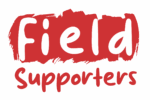What inspires Khidr to support the field?
We are motivated by the urgency of supporting community-led responses to ecological and political violence, especially through projects like Revive Gaza’s Farmland, which mobilize artists and cultural practitioners around food sovereignty.
As hosts, we see field support as a way to hold space for others, offering infrastructure and tools that help grassroots efforts to grow while creating moments for collective learning and action.
We are committed to hosting spaces where film, conversation, and collective presence open portals to shared imagination, grounding urgent political and ecological questions in embodied, place-based experiences that foster reflection, intimacy, and speculative thinking.
Fertile Crescent
What we are testing
Our approach centers on hosting as both a practical and reflective practice: creating spaces where people can come together to learn, share, and act. We work across disciplines to link people, stories, and struggles, especially around land, ecology, and sovereignty. Rather than aiming for fixed outcomes, we try to stay open and responsive, allowing ideas and collaborations to emerge over time.
Through small gatherings, film screenings, and shared conversations, we test how cultural practice might help mobilize care, shift narratives, and support grounded responses to ecological and political challenges. We also focus on decentralization: providing tools, media kits, and open resources so that others can organize independently in their own contexts. Regular reflection circles help us learn across these different places and projects, so that insights can travel and adapt.
By treating our work as a series of small experiments guided by learning questions, we hope to better understand how to support community-led action, connect efforts across geographies, and sustain momentum beyond individual project cycles.
Knowledge exchange
Exploring living, adaptive models of collective learning, cultural production, and ecological solidarity. We ask: How can hosting become a form of vernacular learning? Can community-led cinema, spatial practice, and food sovereignty intersect to shape shared futures? What forms of hosting and collaboration can support cultural work that is ecologically grounded and politically urgent?
Cross-sector collaborations
We facilitate partnerships between artists and farmers to co-create innovative approaches to sustainable land stewardship, ecological resilience, and local food production. Through workshops and creative projects, we place food sovereignty at the center — as both a form of collective resistance and a space for imagination, solidarity, and cultural exchange.
As we carry out this experiment, we are asking key learning questions:
- How can we share tools and methods so they remain adaptable and accessible across different contexts?
- How can we foster a rhizomatic approach to knowledge sharing, ensuring that practices evolve organically, while remaining rooted in shared values of sustainability, inclusivity, and collaboration?
- How can we create mutual learning spaces where knowledge exchange is reciprocal, enabling us to learn from other actors while equipping them to build on and extend the work?
Meet the team
Khidr is an artistic collective initiated by Noura Al Khasawneh and Areej Huniti, housed within Golo Besmlah, a storefront art space in downtown Amman. It hosts collaborative projects, artistic experimentation, and collective learning across disciplines.
Khidr works with both animate and inanimate forms, engaging artists, researchers, and materials as co-conspirators to explore processes that are intuitive, entangled, and responsive to ecological and political urgencies.
From rehabilitations of public spaces to installations and long-term collaborations, Khidr creates soft, everyday encounters that reconnect the body, land, and the sublime.
Recent projects include Revive Gaza’s Farmland, developed with the Arab Group for the Protection of Nature (APN) – a project centered on food sovereignty and resisting the weaponization of food in Gaza.
Khidr’s work moves through slowness, spontaneity, and collective imagination, nurturing alternative rhythms that make space for new ways of being in relation to place, ecology, and one another.
